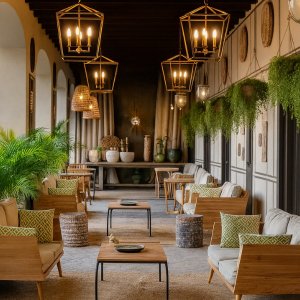The Costa de Huelva hides a treasure of biodiversity, culture, and responsible gastronomy. From the Odiel Marshes to the untouched beaches of El Rompido, this Atlantic territory is emerging as a real model of sustainable tourism in Andalusia. A journey to the essence of the sea, where every experience contributes to conservation and local development.
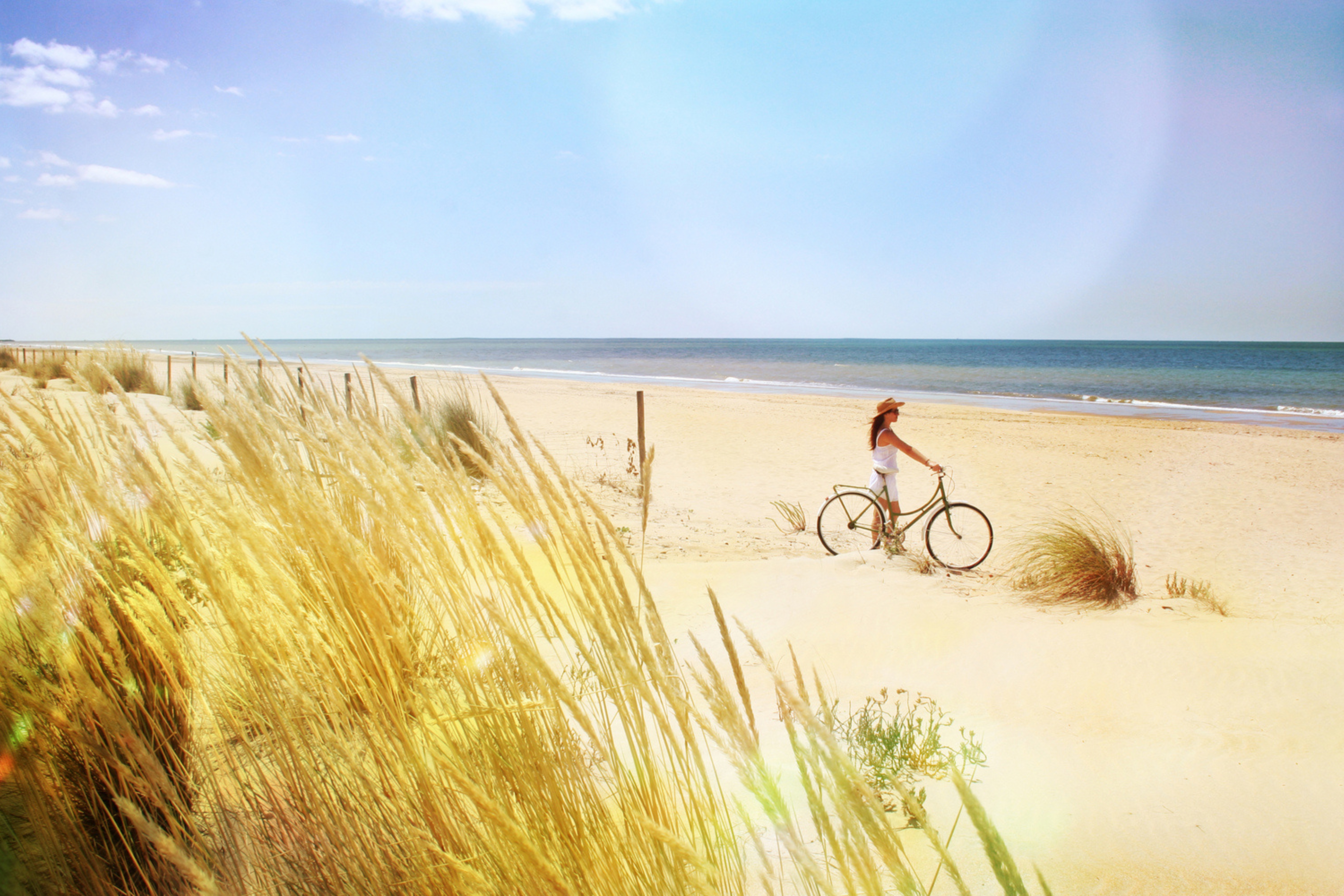
In the southwesternmost corner of Andalusia, where the Atlantic Ocean touches the land with an ancient rhythm, lies a unique region in the province of Huelva: the Coast and Marshes of Huelva. Among estuaries, virgin beaches, restored salt flats, and fishing villages, nature doesn’t just survive—it teaches, connects, and transforms.
This Atlantic corner is much more than a vacation destination. It’s a living laboratory of sustainable tourism in Andalusia—of local gastronomy, environmental conservation, and maritime culture. Through authentic experiences and landscapes untouched by mass tourism, this coastal stretch has quietly become a firm example of balance between development and protection.
Odiel Marshes, where biodiversity finds refuge.

The Odiel Marshes, designated a UNESCO Biosphere Reserve, form one of the most valuable wetlands in Europe. This transitional zone between fresh and saltwater hosts thousands of migratory birds each year, including flamingos, spoonbills, and ospreys, creating a living spectacle of biodiversity.
Several interpretation centers, observatories, and specialized companies promote activities such as birdwatching, guided nature walks, and small-group river excursions—all delivered through an educational, accessible, and respectful lens. A unique opportunity to experience nature tourism with responsibility and awe.
Artisanal fishing and sustainability in Isla Cristina.

Isla Cristina, one of the main fishing ports on the Andalusian Atlantic coast, has preserved its maritime essence while promoting a contemporary vision rooted in sustainability. Local fishing guilds have integrated traditional techniques with responsible marine management models that protect ecosystems and support fishing communities.
Guided tours of fish markets, encounters with fishermen, shellfish gathering workshops, and boat tours through the marsh channels allow visitors to experience a living culture. This tourism supports local consumption, circular economy practices, and the conservation of marine resources.
Virgin beaches and dune systems, natural minimalism in its purest form.
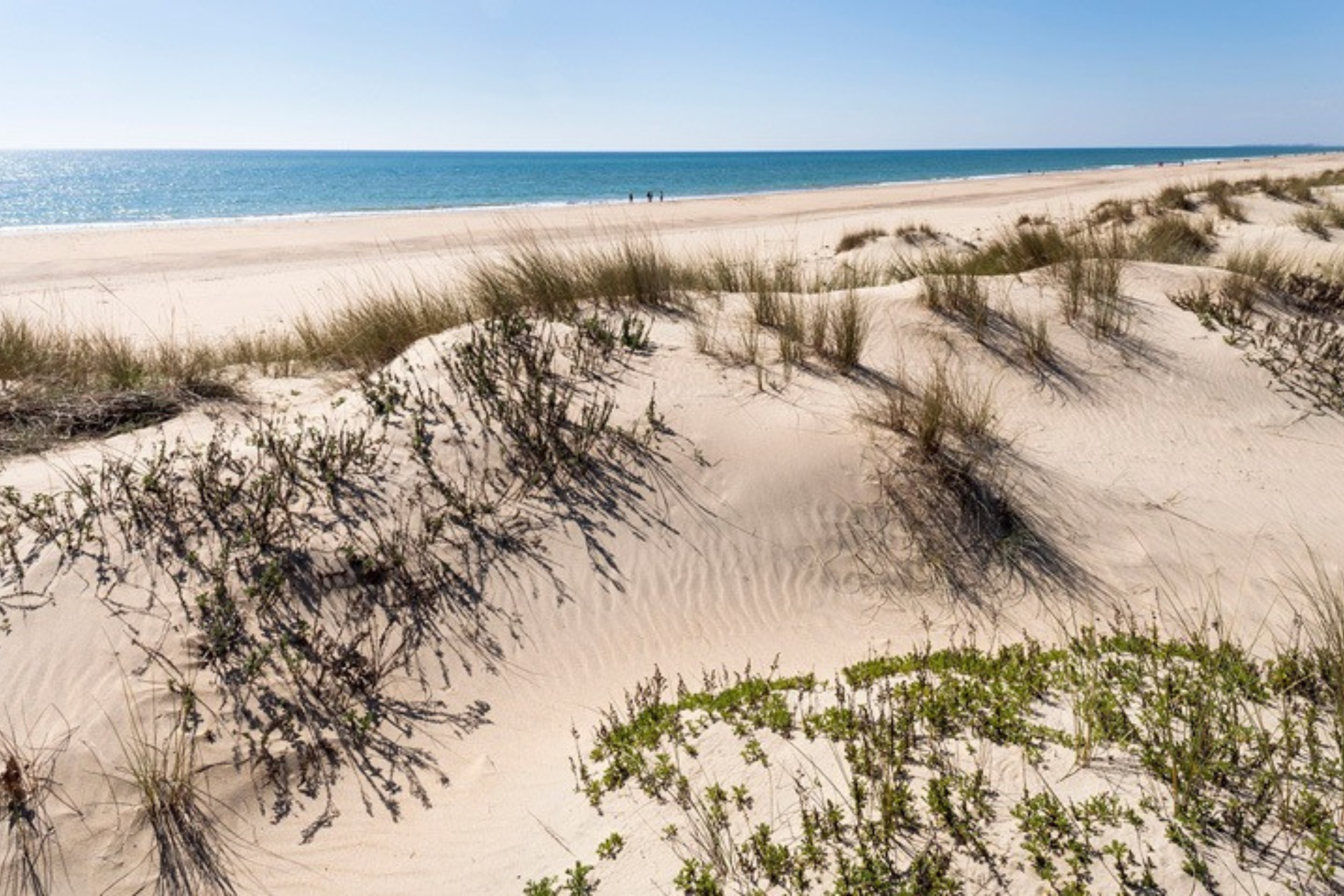
The Huelva coastline is home to some of the most pristine beaches in the Iberian Peninsula. Places like Isla Canela and Punta del Moral, Matalascañas, Mazagón, Punta Umbría, La Antilla, Islantilla, El Rompido, and Nuevo Portil are landscapes shaped by wind and tide, where mobile dunes, coastal pine forests, and silence form a constantly evolving ecosystem.
These beaches, protected within natural parks, feature controlled access, environmental signage, and minimal services. There’s no music or crowds here—only sea, sand, wind, and the chance to reconnect with what matters most through responsible, respectful tourism.
Salt flats and organic salt production.

In areas like Pozo del Camino, La Redondela, or the Marismas de Isla Cristina Nature Reserve, old salt flats have been brought back to life for the artisanal production of organic sea salt and fleur de sel. Using ancestral techniques and without disrupting wetland ecosystems, these salt pans have reemerged as examples of sustainable economy.
Some offer interpretive tours, salt harvesting workshops, or even therapeutic saltwater baths. These activities not only protect biodiversity but also restore cultural and economic value to a nearly lost tradition.
Coastal cuisine, sea and land on one plate.
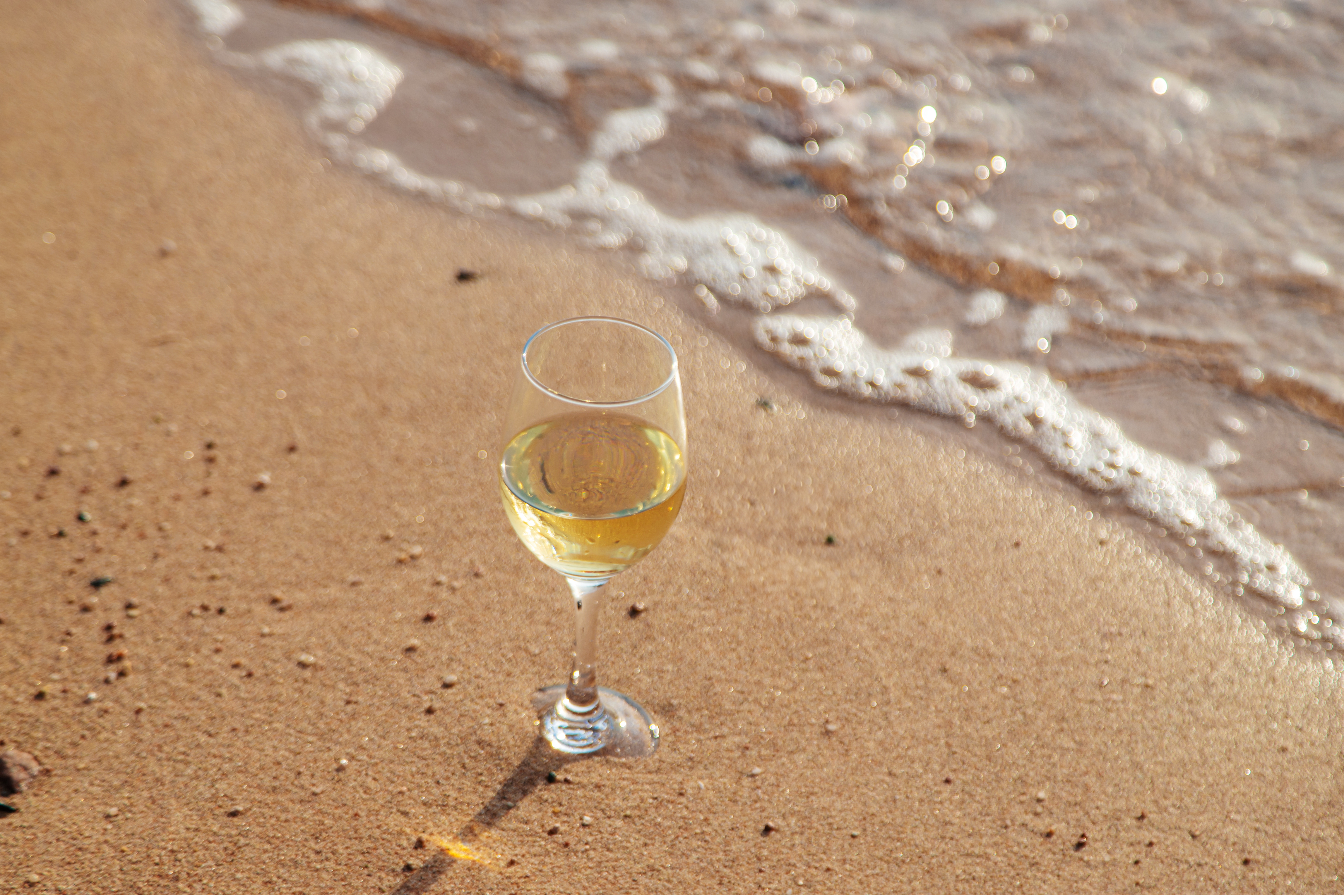
The cuisine of the Costa de Huelva is a direct reflection of its land—honest, flavorful, and deeply rooted. Shellfish like white shrimp, cuttlefish, coquinas, and salted tuna are combined with estuary products, fresh vegetables, and Condado wines to offer an authentic gastronomic experience.
Many local restaurants work with zero-kilometer ingredients, minimize waste, and collaborate with fishing guilds and local producers. Dining here is more than just enjoying the flavors—it’s joining a network of sustainability, identity, and territorial commitment.
A coast that teaches you to see differently.

The Coast and Marshes of Huelva are far more than a coastal landscape. They are a living example of how sustainability can be woven into everyday life without sacrificing identity or beauty.
Traveling along this coast means discovering a region where the sea, culture, and biodiversity live in harmony. From dawn over a marsh to a plate of freshly caught fish prepared by local hands, every experience reflects a place that refuses to forget its roots while building a more respectful future.
Huelva knows that the best way to protect its coast is not to dominate it, but to walk alongside it. In today’s world, that mindset is a profound act of resistance—and a powerful statement of hope.
Costa Huelva, a Biosphere Certified Destination.
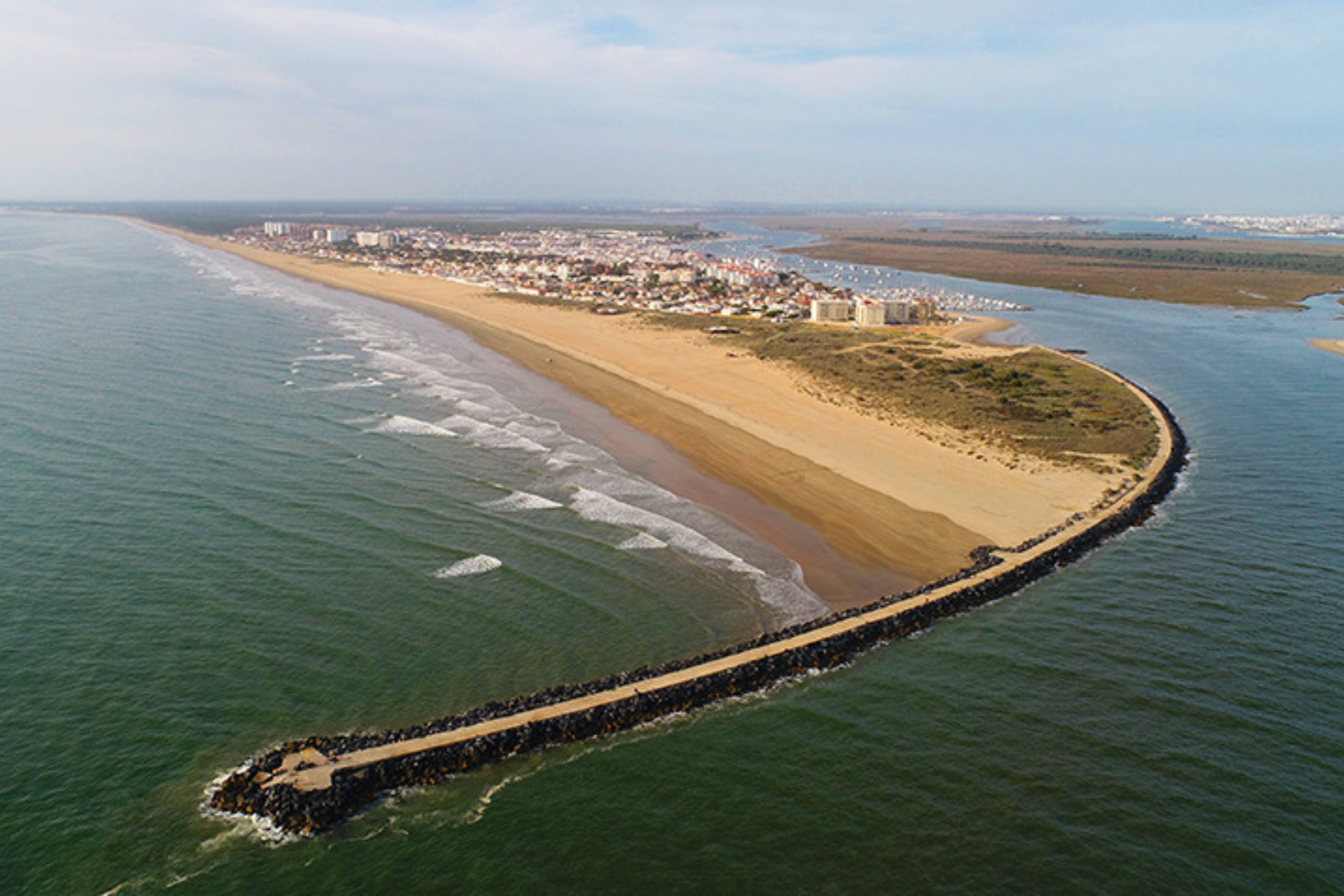
Costa Huelva is a destination that holds the Biosphere Certified label, a certification awarded after verifying the correct implementation of sustainable practices. This distinction ensures the destination’s commitment to sustainability, local development, and the protection of both natural and cultural heritage.
SDGs and sustainability in action.
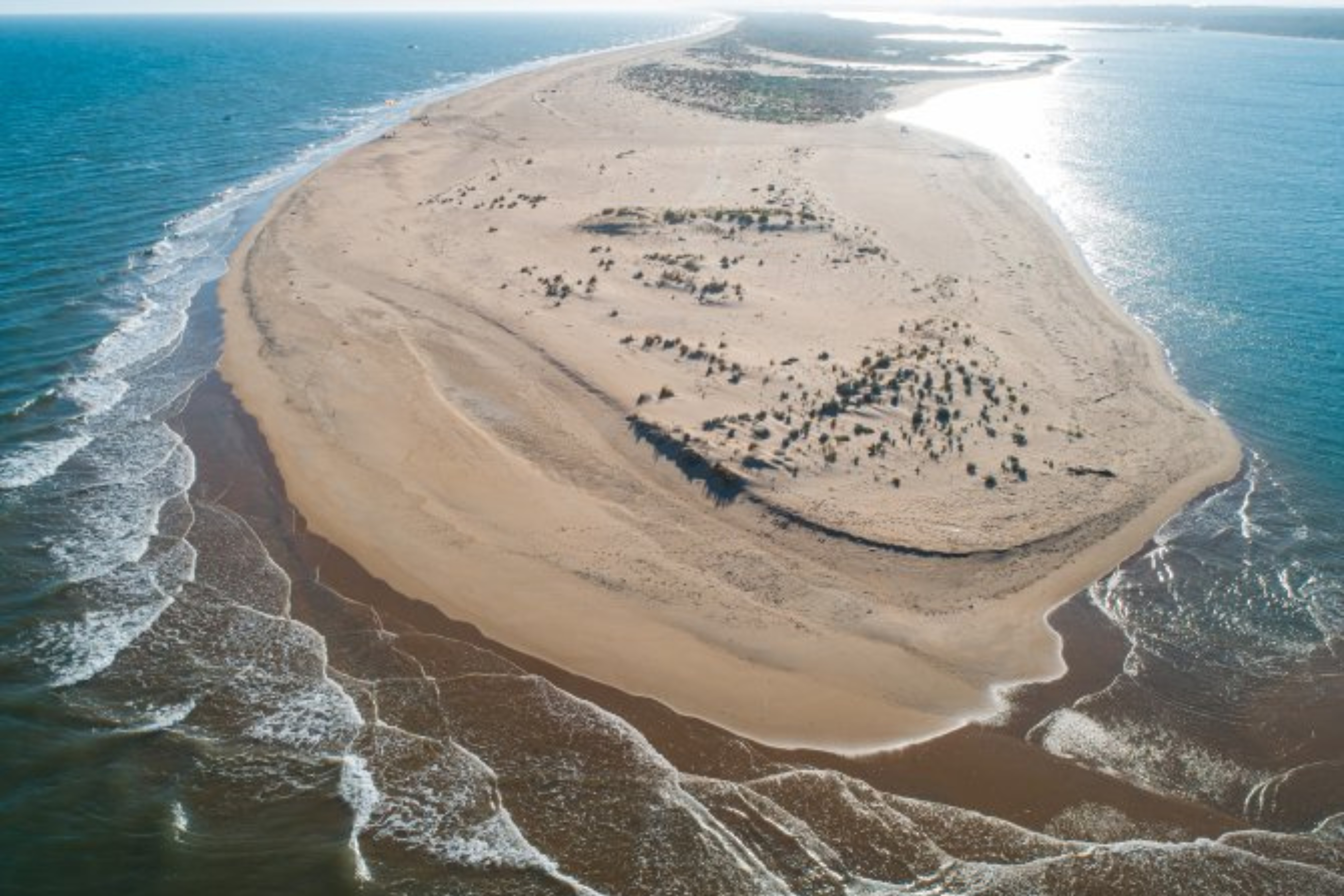
Every experience offered by the Costa de Huelva aligns with the United Nations Sustainable Development Goals (SDGs), proving that tourism can be both responsible and transformative. Activities in wetlands support SDG 15: Life on Land, sustainable fishing initiatives align with SDG 14: Life Below Water, and the promotion of local, traceable gastronomy contributes directly to SDG 12: Responsible Consumption and Production.
Additionally, by encouraging social inclusion, local employment, and training in best practices, this destination also has a positive impact on SDG 8: Decent Work and Economic Growth. Together, these efforts make the Coast and Marshes of Huelva a model for how tourism can become a driver of fairer, more balanced, and resilient development.
Photos: Huelva Tourism Agency












